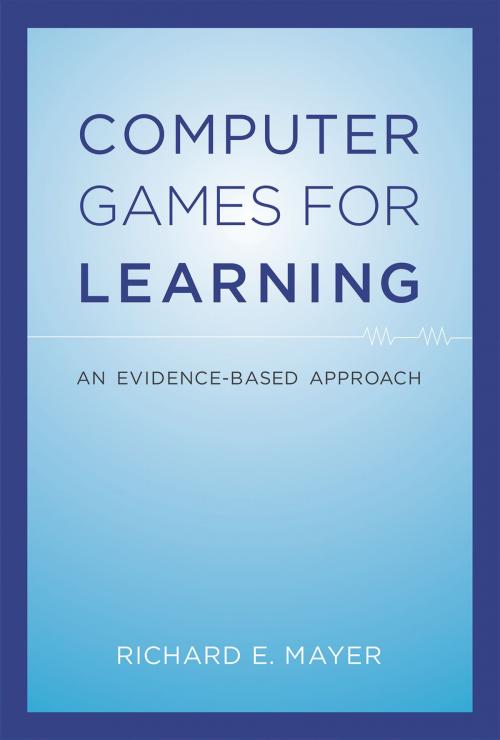Computer Games for Learning
An Evidence-Based Approach
Nonfiction, Reference & Language, Education & Teaching, Special Education, Experimental Methods, Science & Nature, Science, Biological Sciences| Author: | Richard E. Mayer | ISBN: | 9780262324519 |
| Publisher: | The MIT Press | Publication: | July 18, 2014 |
| Imprint: | The MIT Press | Language: | English |
| Author: | Richard E. Mayer |
| ISBN: | 9780262324519 |
| Publisher: | The MIT Press |
| Publication: | July 18, 2014 |
| Imprint: | The MIT Press |
| Language: | English |
A comprehensive and up-to-date investigation of what research shows about the educational value of computer games for learning.
Many strong claims are made for the educational value of computer games, but there is a need for systematic examination of the research evidence that might support such claims. This book fills that need by providing, a comprehensive and up-to-date investigation of what research shows about learning with computer games.
Computer Games for Learning describes three genres of game research: the value-added approach, which compares the learning outcomes of students who learn with a base version of a game to those of students who learn with the base version plus an additional feature; the cognitive consequences approach, which compares learning outcomes of students who play an off-the-shelf computer game for extended periods to those of students who do not; and the media comparative approach, which compares the learning outcomes of students who learn material by playing a game to those of students who learn the same material using conventional media.
After introductory chapters that describe the rationale and goals of learning game research as well as the relevance of cognitive science to learning with games, the book offers examples of research in all three genres conducted by the author and his colleagues at the University of California, Santa Barbara; meta-analyses of published research; and suggestions for future research in the field. The book is essential reading for researchers and students of educational games, instructional designers, learning-game developers, and anyone who wants to know what the research has to say about the educational effectiveness of computer games.
A comprehensive and up-to-date investigation of what research shows about the educational value of computer games for learning.
Many strong claims are made for the educational value of computer games, but there is a need for systematic examination of the research evidence that might support such claims. This book fills that need by providing, a comprehensive and up-to-date investigation of what research shows about learning with computer games.
Computer Games for Learning describes three genres of game research: the value-added approach, which compares the learning outcomes of students who learn with a base version of a game to those of students who learn with the base version plus an additional feature; the cognitive consequences approach, which compares learning outcomes of students who play an off-the-shelf computer game for extended periods to those of students who do not; and the media comparative approach, which compares the learning outcomes of students who learn material by playing a game to those of students who learn the same material using conventional media.
After introductory chapters that describe the rationale and goals of learning game research as well as the relevance of cognitive science to learning with games, the book offers examples of research in all three genres conducted by the author and his colleagues at the University of California, Santa Barbara; meta-analyses of published research; and suggestions for future research in the field. The book is essential reading for researchers and students of educational games, instructional designers, learning-game developers, and anyone who wants to know what the research has to say about the educational effectiveness of computer games.















